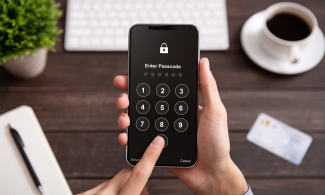
Why & How To Protect Your Digital Assets with Attorney Susan McCoy
You’ve documented who gets the house, how to access your life insurance policies, and which loved one will care for Fido. But, what about your log-in for the electric bill? Your cell phone and internet accounts? Your digital family photo album? Your LinkedIn and Facebook profiles?
It might sound silly - planning who will be in charge of canceling your Netflix subscription. But, we assure you it is anything but.
We’ve worked with many families to help them navigate transitions with more ease and confidence and, time and again, one of the most stressful (and surprising) experiences people face is learning how to access and protect their loved ones’ digital assets.
We’re committed to ensuring this isn’t the case for you and your family. To support this, we sat down with Susan McCoy, Elder Law & Estate Planning Attorney at Halloran Sage to understand what steps you can take to protect your digital assets. Check out highlights from our conversation, including Susan’s top tips, below:
What is a digital asset?
A digital asset is essentially anything you need a username and password to log-in to, including:
- Social media accounts
- Online accounts (i.e. taxes, utility payments, bank accounts)
- Domain names
- Blog content
- Digital photo and video storage
- Computer files
- Software
- Cryptocurrency
- Online gaming avatars
Some people assume that because they don’t have social media accounts or don’t do online banking, that they don’t have digital assets. However, according to McCoy, that’s likely not true- we all have digital assets in some form or another. And, every single day, new digital assets are created and we actively opt-in to them, whether we’re conscious of it or not.
Why do I need to protect my digital assets?
Digital assets are often overlooked, primarily because you can’t see them. Unlike cars and homes, which we readily view as physical assets and take the necessary steps to protect and pass on, digital assets are an afterthought. Oftentimes, family members don’t even know they exist when their loved one becomes incapacitated or passes on.
Even if your loved one knows what digital assets you possess, that doesn’t guarantee they’ll have access to them in the future. One of the major reasons for this disconnect is that the laws established back in the ‘80’s to protect us from identity theft don’t account for the fact that so many of our life activities happen online today, specifically in our email account(s). “The Electronic Communications & Privacy Act, the Computer Fraud & Abuse Act, and the Stored Communications Act are all criminal statutes that say ‘If I create an account online, like an email account that is mine, it's personal, and no third party can get access in.’ In 1986, that seemed like the right thing to do to protect us from identity theft. But, here we sit in 2023 with so many of our life activities happening in that email account. As a result, it creates a lot of risk for individuals and families who don’t proactively plan around this,” says McCoy.
To complicate things further, in 2014 the Uniform Fiduciary Digital Assets Act was adopted and created, which allowed each state the opportunity to create their own set of laws to manage fiduciary assets. However, not every state has formally adopted laws to govern fiduciary rights to digital assets which means you can’t rely on the law to ensure your loved ones will have access to what they need in order to manage, organize, or carry out your affairs.
As a result, McCoy shares that the best way to minimize risk and protect your assets is by proactively taking steps to inventory your digital assets and document them, including affirmatively outlining who should have access to these assets in the event of death or incapacitation.
Where should I start?
Step #1: Take inventory of your digital assets
To start, take time to create a listing of all of your accounts, usernames, and passwords. It might seem counterintuitive to have all of this information exist in one location, but it’s really important because the sheer number of digital assets each of us own is exhaustive (whether or not we’re consciously aware of it); just be sure to store it in a safe location. This might sound quick and easy; however, many people find that they forgot just how many of their accounts require a username and password given the modern-day conveniences of facial recognition, swipe capabilities, and automatic log-ins. As a result, it’s best to start this process early and revisit your inventory every year.
Pro Tip: If you’re overwhelmed by the thought of making a full inventory right now, start by documenting your email addresses and passwords. According to McCoy, a lot of people assume loved ones will be able to access their phone, which will automatically give them access to accounts and apps. However, she’s seen numerous situations - such as when phones are held for evidence after an accident - that this is not the case.
Step #2: Pay attention to terms of service agreements
It’s easy to breeze through terms of service agreements, but McCoy urges the importance of reviewing them before you check ‘accept’, noting that “the terms of service, definitionally, is a contract between you and the service provider and that defines the relationship.” There have been cases where email providers, such as Yahoo!, were not required to grant access to family members of deceased account holders. Such cases have gone to the highest court in the respective state and still been denied access - “The Commonwealth of Massachusetts said ‘You're allowed to get around the criminal statute in a case like this’. But, the email provider then fell back on their terms of service and the terms of service said very specifically, ‘We can deny access to a fiduciary in our discretion’. So, they were able to protect themselves. Yahoo’s! main concern was being liable for giving out someone’s personal information which is a good instinct, unless you’re the family member of this person trying to get access. The key takeaway here is that even if the law didn't protect the email provider, their contract did,” states McCoy.
Step #3: Take advantage of legacy designation settings
The good news is that a number of providers are now offering legacy designation settings that allow you to designate someone who can have access to your account. “I'm a big Apple person. Our whole family has all of our photos on Apple Family Share, and we share all of our videos and music on it. There's a lot of content in there that my family would be devastated if they couldn't get. So, I went in and read my Apple terms of service for a family account and they have a tab in there specifically for a legacy designation that says ‘If you are not here, who would you allow to have access to your account?’ I found out Facebook has the same thing. It's worth spending a couple minutes to stroll through and see if that's a viable possibility with your accounts, platforms, and applications. If that isn’t available, you have to go back to your documentation, your power of attorney, your will, and make sure the right language is in there, giving somebody access,” says McCoy.
Step #4: Make it a family affair
McCoy also expressed the importance of communicating openly with your partner, children, and other loved ones about the basic details of your account - “I've seen it too many times where one spouse is doing it all - paying all the bills, managing all the accounts - and the other spouse has no idea. The other side of that coin is parents who don't want to tell their children about assets. The thing is - you don't have to give numbers, you don't have to give net worths, you don't have to disclose details you don’t feel comfortable disclosing. But, you're doing yourself and your family a disservice if you don't at least share where things are or share where things are with a planner like Entrust Wealth Partners and say, if something is wrong, call Peter, call Keith. Somebody's got to have the information.”
Important Note:
It’s common to think of estate planning, including digital asset protection, as something you plan for in the event of death. However, too often we see clients or their loved ones become incapacitated - due to accident, a medical condition, an elongated hospital stay, or other unexpected event. In these cases, having access to the right digital assets is actually more important and urgent than in the event of a loved one passing. We share this to say that this is something people of all ages should be thinking about and planning for.
Final Thoughts
We so strongly believe in the importance of this topic that we want to make it accessible to everyone - please be sure to share with your family members, friends, and colleagues. And, if you’re ready to take the first steps to protect your digital assets, don’t hesitate to reach out to your Entrust Wealth Partners advisor for support. We’re committed to helping make this process as successful as possible so we can continue to protect those things that matter most to you.
About Susan McCoy
Attorney Susan McCoy is a subject matter expert in all things estate law, including the topic of digital assets. In addition to being a Partner at Halloran Sage, Susan is a member of the National Association of Elder Law Attorneys, the Massachusetts Bar Association, the Hampden County Bar Association. She is a Member and past President of the Estate Planning Council of Hampden County.
Susan is also involved in a number of community activities, serving on the Board of Trustees for the Mason-Wright Foundation, former member of the Board of Directors for the United Way of Pioneer Valley, Inc., and is a founding member of the Women’s Leadership Council for the United Way.
Content in this material is for general information only and not intended to provide specific advice or recommendations for any individual.
This information is not intended to be a substitute for individualized legal advice. Please consult your legal advisor regarding your specific situation.
Entrust Wealth Partners and LPL Financial do not provide legal advice or services.
Susan McCoy and Halloran Sage are not affiliated with or endorsed by LPL Financial and Entrust Wealth Partners.

